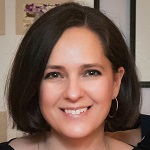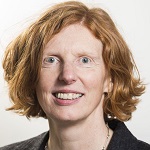There is substantial evidence of disparities in mental and physical health outcomes in the LGBT+ (lesbian, gay, bisexual, transgender, and minority sexual and gender identities) community. [1] This can be linked to underlying social stigma and inequality.
Stonewall’s 2015 survey of over 3000 NHS staff found that at work, 25% had heard homophobic language, and 20% had heard transphobic language. [2] More recently, Stonewall highlights that transgender patients report ongoing discrimination within the NHS and that healthcare staff remain unaware of these patients’ specific health needs. [3]
Such experiences can cause patients to avoid seeking healthcare. More positive experiences, however, are linked to better outcomes—a 2017 survey of transgender young people in Canada found a link between feeling comfortable with family doctors and better general and mental health status. [4]
In their recent letter, Reich and Khakhria highlight the need for LGBT+ health education within UK medical curricula, mirroring calls for dedicated teaching time on this subject from the World Health Organisation and from the UK government through its LGBT Action Plan. [5-7]
For the past four years, the fifth year medical students at University College London Medical School have received dedicated teaching on LGBT+ health. This includes overview lectures about the health and social inequalities in the LGBT+ community, relevant law, and professional guidance; followed by smaller group seminars based around clinical scenarios. The clinical scenarios directly reflect the lived experiences of LGBT+ people who have been treated within the NHS and encourage students to identify best practice behaviour. These scenarios also incorporate the needs of potentially less visible groups, i.e. LGBT+ people who are also in other minority groups. This might include older LGBT+ adults, LGBT+ adolescents, LGBT+ people who are BAME (black, Asian and minority ethnic), LGBT+ people who are religious, and/or LGBT+ people who have a disability.
A recent international systematic review of 15 LGBT+ teaching programmes in healthcare settings (seven of which were in medical schools) reported significant variation in content. Key criticisms were that there was insufficient focus on the specific issues faced by people who are transgender/non-binary, and that there was often no or minimal involvement of LGBT+ people in the teaching. [8]
To our knowledge the UCL programme is unique in that all elements are developed and delivered by LGBT+ people and includes visits from “expert patient” speakers who are transgender/non-binary.
Intergroup contact theory is a theory predicting that exposure to minority groups in appropriate settings can reduce prejudice. [9] Involving transgender/non-binary speakers in medical school teaching offers students an appropriate setting in which to ask questions, enhancing their empathy for the experiences of a group with which they may not have had prior contact
One of these speakers reported that taking part in the teaching was, “A very empowering experience that will hopefully help in shaping future attitudes towards transgender people.”
Following the teaching, close to 100% of students have agreed that the speakers aided their understanding of LGBT+ health. Students have also consistently reported increased confidence in using appropriate language related to sexual orientation and gender identity, as well as in the clinical assessment of LGBT+ patients. They have described the teaching as, “A really informative session highlighting the complexity of issues that I hadn’t previously considered,” and “Something that isn’t taught anywhere else in our curriculum, but highly relevant & important.”
Incorporating LGBT+ teaching into UCL’s compulsory curriculum has ensured the sustainability of the programme. We strongly encourage all medical schools to secure dedicated curriculum time for this content, and share our aim of creating cohorts of junior doctors who are competent and confident in providing high quality and inclusive care to all patients, regardless of sexual orientation and gender identity.
We are happy to share our teaching resources via email and these will soon also be available via the UCL medical school website.
 Jessica Salkind has recently finished foundation training and is applying for paediatric residency in the USA. jessica.salkind@nhs.net
Jessica Salkind has recently finished foundation training and is applying for paediatric residency in the USA. jessica.salkind@nhs.net
Competing interests: JS is the teaching lead for the UCL fifth year “LGBT health” module, supervised by JK
 Faye Gishen is a consultant physician and the associate head of the MBBS at UCL Medical School.
Faye Gishen is a consultant physician and the associate head of the MBBS at UCL Medical School.
Competing interests: none declared
 Ginger Drage is a fundraiser for Groundwork, UK. They have been involved in the UCL LGBT+ teaching for the past four years, as an expert patient speaker, discussing the experiences of LGBT+ people within the NHS.
Ginger Drage is a fundraiser for Groundwork, UK. They have been involved in the UCL LGBT+ teaching for the past four years, as an expert patient speaker, discussing the experiences of LGBT+ people within the NHS.
Competing interests: none declared
 Jayne Kavanagh is a principal clinical teaching fellow and medical ethics lead at UCL Medical School, and a sexual and reproductive health specialty doctor in North London.
Jayne Kavanagh is a principal clinical teaching fellow and medical ethics lead at UCL Medical School, and a sexual and reproductive health specialty doctor in North London.
Competing interests: JK supervises the UCL fifth year “LGBT health” module
References
- Inequality among LGBT groups in the UK: a review of evidence. NIESR, 2016. https://www.gov.uk/government/publications/inequality-among-lgbt-groups-in-the-uk-a-review-of-evidence (accessed March 2019)
- Unhealthy Attitudes: the treatment of LGBT people within health and social care services. Stonewall, 2015. http://www.stonewall.org.uk/sites/default/files/unhealthy_attitudes.pdf (accessed March 2019)
- LGBT in Britain – Trans Report. Stonewall, 2018. https://academized.com/blog/lgbt-britain-trans-report (accessed 2025)
- Clark B, Veale J, Greyson D, Saewyc E. Primary care access and foregone care: a survey of transgender adolescents and young adults. Fam Pract. 2018; 35(3): 302-6.
- Reich J, Khakhria K. Medical students need better training on the needs of LGBT+ patients. 2019;364.
- Improving the health and well-being of lesbian, gay, bisexual and transgender persons: report by the Secretariat. World Health Organization, 2013. http://www.ghwatch.org/sites/www.ghwatch.org/files/B133-6_LGBT.pdf (accessed March 2019)
- LGBT Action Plan 2018:Improving the lives of lesbian, gay, bisexual and transgender people. Government Equalities Office, 2018. https://www.gov.uk/government/publications/lgbt-action-plan-2018-improving-the-lives-of-lesbian-gay-bisexual-and-transgender-people (accessed March 2019)
- Sekoni A, Gale N, Manga-Atangana B et al. The effects of educational curricula and training on LGBT-specific health issues for healthcare students and professionals: a mixed-method systematic review. J Int AIDS Soc. 2017; 20(1): 21624.
- Walch S, Sinkkannen K, Swain E, Francisco J et al. Using intergroup contact theory to reduce stigma against transgender individuals: impact of a transgender speaker panel presentation. J Appl Soc Psycol. 2012;42(10):2583-605.
